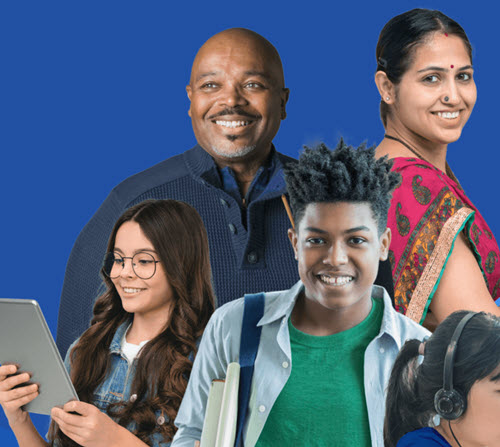PARAMUS, N.J./PRNewswire/ -- Savvas Learning Company, a next-generation K-12 learning solutions leader, is excited to announce that it has been named to the 2024 edition of the GSV 150, an annual list of the top 150 private companies transforming digital learning and workforce skills. This is the second year in a row that Savvas has been named to the GSV 150."At Savvas, we are committed to developing innovative learning solutions that are powered by the most advanced technology to help educators meet the needs of all students," said Bethlam Forsa, CEO of Savvas Learning Company. "Savvas is honored to be recognized among the exceptional companies on the GSV 150 who are champions of educational technology — including new AI-enabled systems — to make for a richer, more personalized teaching and learning experience for all."GSV is a global community and investment platform singularly focused on elevating the scope and scale of innovation in the $7 trillion education and workforce sector. It estimates that together these 150 companies reach roughly 3 billion people — almost half of the global population — and generate approximately $23 billion in revenue.
Savvas was chosen from more than 2,000+ global companies revolutionizing the world of education technology, from Pre-K-12 to workforce learning. GSV Ventures evaluated these companies on five criteria — revenue scale, revenue growth, active learner reach, international reach, and margin profile — to determine the global GSV 150 list.With an innovation mindset and a focus on technology to personalize instruction at scale, Savvas empowers educators and engages students with high-quality, interactive PreK-12 learning solutions. It recently acquired Outlier.org and its portfolio of online, asynchronous college-level courses that combine cinematic videos and charismatic professors, enabling high school students to earn dual credit while never having to leave their school building. The acquisition will allow Savvas to offer an immersive, engaging college learning experience to millions of high school students and increase educational equity, access, and opportunity.In 2023, Savvas acquired Whooo's Reading and its cutting-edge AI-driven technology, which Savvas is thoughtfully integrating into its digital ecosystem of innovative learning solutions. Savvas believes that AI's game-changing capabilities have the potential to take personalized learning to new heights while providing teachers time-saving tools to make their jobs easier, enabling them to spend more time interacting with students."The world is adapting to seismic shifts from generative AI," said Luben Pampoulov, partner at GSV Ventures. "AI co-pilots, AI tutors, AI content generators — AI is ubiquitous, and differentiation is increasingly critical. The GSV 150 is an impressive group of edtech companies that are leveraging AI and driving positive outcomes for learners and society."Visit GSV 150 for the full list of 2024 winners.In addition to Savvas being selected for inclusion on the GSV 150 list, Forsa has also been chosen to speak at the ASU+GSV Summit 2024 in San Diego, in panel discussions focusing on the AI Revolution in Digital Education as well as K-12 schools and content.
More News from eSchool News
‘Too many apps for that’ in schools
A “patchwork of apps” in schools often leads to app fatigue, frustrating parents and educators who have to use multiple apps weekly, or even daily, according to new research from Cornerstone Communications, LTD. and Edsby.
How 4 districts use AI tools to transform education
Simply put, AI can do a lot–it can personalize learning, help students expand on ideas for assignments, and reduce time spent on administrative tasks, freeing up educators to spend more time on instruction.
What I learned building an AI tool for my own kids (and millions more worldwide)
A recent survey found that 88 percent of U.S. parents believe AI is essential to their children’s education, but most aren’t even sure whether the technology is being used in their child’s classroom.
Can AI help reduce math anxiety?
As AI becomes more widespread in education, more than half of high school students (56 percent) polled think it can go a long way in reducing math anxiety, a new global survey shows.
Here’s what birdwatching taught me about classroom management
Teachers often seem to have eyes in the back of their heads. They respond to a murmured question in a class full of conversation. They can tell if someone’s skipping class a floor away by reading faces in the room.
Beyond digital literacy: Why K-12 educators must prioritize data literacy
While digital literacy has become an aspirational cornerstone of modern education, the exponential growth of data-driven decision-making across industries reveals critical gaps that demand a stronger focus on data literacy.
How to teach K-12 coding without computers
Teaching K-12 coding without computers may seem like a daunting task, but it can be a powerful way to introduce students to the fundamental concepts of computer science and problem-solving without the distraction of technology.
SkillsUSA competitions give students hands-on experience with career skills
The most effective way for students to learn career-ready skills in fields such as advanced manufacturing and robotics is by applying these skills in the context of authentic projects and real-world scenarios.
The human edge in the AI era
In the Future of Jobs 2025 report, the World Economic Forum predicts that 60 percent of jobs will require upskilling or retraining, or they’ll be threatened. The skills we have today may not keep us secure for long.
Growing challenges for school counselors impact student outcomes
Middle and high school counselors juggle overwhelming caseloads, expanded mental health duties, and additional administrative burdens–all of which limit their ability to provide individualized support for students.











